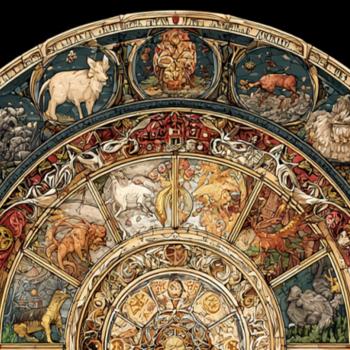
There’s a verse in 1 Corinthians 15 that most Evangelical Christians really wish wasn’t there. If you ever want to be entertained, try asking them to explain what this verse means and then just sit back and marvel at the gymnastics display.
Here’s the verse:
“For as in Adam all die, so in Christ all will be made alive.” 1 Cor. 15:22
There’s a companion verse to this on where Paul says much the same thing here:
“For as by one man’s disobedience many were made sinners, so by the obedience of one shall many be made righteous. Moreover the law entered, that the offence might abound. But where sin abounded, grace did much more abound” Romans 5:19-20
Both of these texts are arguing the same point in the same way: In the same way that sin and death came to everyone through Adam, grace and life came to everyone through Christ.
It couldn’t be any clearer, really. Unless you’re predisposed to deny Paul’s assertion and then you’ll need to find creative ways to show that “all” doesn’t mean “all” and that the same group that inherited sin through Adam can’t be the same group that inherits grace through Christ.
What makes this even more challenging for these Christians is the fact that Paul goes as far as to stress that the limitations of sin through Adam are overwhelmed by the abounding grace of Christ; “…where sin abounded, grace did much more abound.” [Rom. 5:20]
Limited Atonement specialists would like you to believe that the logic is reversed; that it is the grace of Christ that is limited and the sin of Adam that is universal. See, they really need you to accept the notion that EVERYONE is a sinner because of Adam’s original sin, but that only a FEW are made alive through Christ.
Unfortunately, they have to do violence to Paul’s arguments in 1 Cor. 15 and Romans 5 to do so.
And the most remarkable thing is this: They’re pretty successful at it.
I mean, they’ve managed to convince millions of Christians in pews around the world that every human being is a sinner because of Adam, but that only Christians get to enjoy the grace of God through Christ.
How crazy is that?
My friend Matthew Distefano recently sent me an email about this very topic. He pointed out that there is a Jewish argumentation technique [Kal V’Chomer] which tends to phrase things in exactly the same way as Paul does in these passages above.
As Matt points out:













